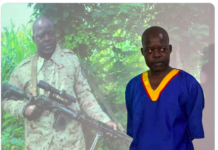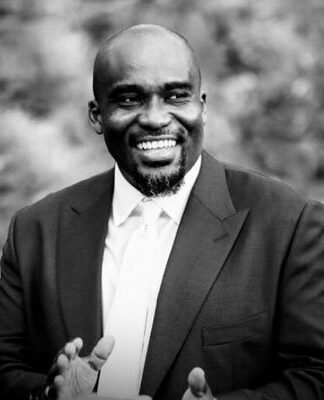I have been re-reading Robert Greene’s 48 laws of power. No need to mention, Rwanda’s President Paul Kagame seems to have mastered and applies more than half of them. On the contrary, his adversaries, consciously or otherwise, disregarded them. One striking common denominator among his former friends turned foes is their disregard of law number one. Some should be praised for that, some should be questioned for that. But that is for another day.
What should be carefully considered is law number 48, which is: “Assume formlessness”. The law argues that by taking a shape, by having a visible plan, you open yourself to attack. Instead of taking a form for your enemy to grasp, keep yourself adaptable and on the move. Accept the fact that nothing is certain and no law is fixed. The best way to protect yourself is to be as fluid and formless as water; never bet on stability or lasting order. Everything changes.
In the face of the world’s harshness and danger, organisms of any kind develop protection—a coat of armor, a rigid system, a comforting ritual. For the short term it may work, but for the long term it spells disaster. People weighed down by a system and inflexible ways of doing things cannot move fast, cannot sense or adapt to change. People lumber around more and more slowly until they go the way of the brontosaurus. A power holder must therefore learn to move fast and adapt or will be eaten. The best way to avoid this fate is to assume formlessness. No predator alive can attack what it cannot see. The power holder’s speed and mobility makes it impossible to predict his moves. Unable to understand him, his enemy can form no strategy to defeat him. “Be like a vapor. Do not give your opponents anything solid to attack; watch as they exhaust themselves pursuing you, trying to cope with your elusiveness. Only formlessness allows you to truly surprise your enemies. By the time they figure out where you are and what you are up to, it is too late,” says the law,
There is no doubt that Paul Kagame masters this law. Formlessness makes his enemies hunt all over for him, scattering their own forces, mental as well as physical. When he plays with formlessness, he keeps on top of the process, and keeps his long-term strategy in mind. Nothing, other than formlessness, explains his devotion not to change the constitution, only to promote a debate about it later, and at the same time congratulating the Democratic Green Party of Rwanda for “exercising” their democratic rights when the party challenged the impending amendment, on his tweeter.
If there is one thing most of his adverseries, including yours truly, agree on, is his un.predictability. Un-predictability is the simplest manifestation of formlessness common to narcissists that PK is.
However, that people may not predict his exact steps doesn’t preclude predicting a broader direction. Indeed, Africom’s risk analysis released in 2011 acknowledged that the question of who will succeed President Kagame—and when—will be a source of uncertainty and possible contention. The RPF’s power, decision-making, public relations strategy, and legitimacy rest overwhelmingly with Kagame, and his departure would dramatically change how the regime is perceived. The elections in 2017 could be a moment for a significant political break.
The analysis further said that Kagame is constitutionally prohibited from running for a third term, although given the RPF’s control over the legislature and the legislature’s deference to him, a term extension is very plausible. However, the report said, forcing through such a change in Rwanda in 2017 could provoke a more sustained campaign by opposition leaders, particularly if backed by diplomatic support from African regional bodies or the international community. “If Kagame were to step down, it is today hard to imagine that the RPF would countenance any election process that might entail their defeat. Opposition parties in the diaspora appear to be building toward a unified cross-ethnic platform, and by 2017 may be adequately resourced and organized to present a real challenge in a free and fair election process. Rwanda’s last two elections do not bode well for its next one.”
The report further says that there is some possibility -albeit slim -that President Kagame will be pushed out of office by elements within the RPF. That some of his most senior confidants have defected in recent years underscores this possibility -some of these former commanders may still enjoy the allegiance of a segment of the RPF or the military forces. Kagame is surely attuned to this possibility, and he has replaced these senior leaders with a younger set of loyalists without popular constituencies or alliances of their own, who are entirely beholden to him.
Four years later; whether the opposition parties in the diaspora have succeeded in building a unified cross-ethnic platform or whether the former RPF stalwarts turned dissidents have galvanized enough regional and international support, together with an internal critical mass to unseat Kagame is another subject for another day. However, what is incontestable, in the Africom report, is the fact that Kagame wants the constitution changed, for reasons I explained days ago.
But should we assume we understand with exact precision what will happen come 2017? Look, the US, his biggest ally, has already clarified that she won’t support a constitutional amendment for the sake of one man staying in power, this notwithstanding the fact that what the US state department says and what they actually do on the ground are two different things, plus the fact that the US state department minimally runs US foreign policy. Meanwhile, the hurdles Kigali is facing over BBC closure from the US and EU are not for the faint hearted. The regional power-play isn’t for the faint-hearted either. The aborted Burundi coup, aborted anti-FDLR campaign, aborted M23 campaign, all point to one thing- a former strongman-cum-ally whose powers are slowly but surely being trimmed.
Paul Kagame’s last hold on legitimacy is stepping down come 2017 to which he won’t. Yet, anyone who has keenly followed him will agree that he would fight to maintain some semblance of legitimacy- the very reason all and sundry in Rwanda, including genocide convicts, are being coerced to write letters demanding a constitutional amendment.
Is there anyone, like me, envisaging a replica of 1994? A constitutional amendment abolishing term limits alongside restoration of a Vice President position, sails through. Paul Kagame doesn’t contest. A PSD candidate (Anastase Murekezi) or an independent (like Bernard Makuza) contests and wins. Kagame becomes the vice president and defense minister. A year later, the parliament passes a vote of no confidence in the president. Rwandans rise up demanding that Kagame takes over- an exact replica of 2000 after Bizimungu; and, voila- technician en chef Kagame ka Rutagambwa ka Kabare effectively silences western capitals and his diaspora critics while at the same time coming in as a “savior of a nation”- once again!
Didas Gasana





























































